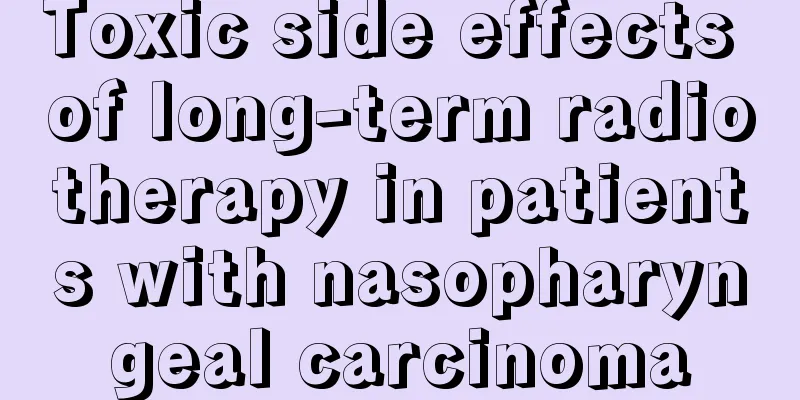Toxic side effects of long-term radiotherapy in patients with nasopharyngeal carcinoma

|
For patients with advanced nasopharyngeal carcinoma, radiochemotherapy is the first choice. With the continuous maturity of medical technology and the increasing accumulation of clinical experience, the survival rate of nasopharyngeal carcinoma patients after radiotherapy has greatly improved. People have begun to pay attention to the quality of life after radiotherapy. So what are the side effects of long-term chemotherapy? Damage to the skull base, brain stem, spinal cord, eyes The nasopharynx is close to important organs such as the skull base, brainstem, spinal cord, and eyes. Its main metastasis mode is lymphatic metastasis. According to statistics, more than 60% of patients seek medical treatment for neck lumps, so it is easier to invade our neck. The most common sequelae after radiotherapy are dry mouth caused by parotid gland damage, difficulty opening the mouth due to damage to the masticatory muscles and temporomandibular joints, and difficulty swallowing caused by radiation damage to swallowing structures such as the throat and esophagus. The dysfunction of these tissues seriously affects the quality of life of patients. Can cause brain damage Long-term chemotherapy can cause brain damage, such as diffuse leukoencephalopathy, cerebrovascular disease, etc. Patients may experience personality changes, amnesia, mental dullness, transient loss of consciousness, etc. Some people also have increased intracranial pressure, and the consequences are relatively serious. Causes difficulty swallowing Dysphagia is a common symptom in the late stage of nasopharyngeal carcinoma. It is also one of the major complications after long-term radiotherapy, with an incidence rate of 70% to 80%. Severe patients can only take liquid food, resulting in malnutrition, weight loss, and serious impact on disease recovery; aspiration pneumonia caused by dysphagia is also a major cause of death after radiotherapy. Damage to the auditory system Because my country's current radiotherapy technology is not yet perfect, the areas near the ear, temporal area and brainstem cannot be completely avoided during radiotherapy. This part will be affected by radiation, mainly causing damage to the auditory system, causing otitis media, auditory nerve damage or mixed deafness, etc. |
<<: Three dietary treatments for nasopharyngeal cancer
>>: Is colon cancer contagious?
Recommend
Why is there bloodshot on one side of the white of my eye?
Everyone knows that eyes are an important part of...
Applying aloe vera gel on face causes stinging
Many female friends often experience tingling and...
Pain next to belly button
The human belly button is located at the location...
Can early osteosarcoma be cured?
Patients with osteosarcoma may generally experien...
What are the fruits that are good for the stomach?
We need to pay more attention to the maintenance ...
What to use to remove oil from face
People often tell you that you have an greasy fac...
What are the treatments for advanced gastric cancer?
In recent years, gastric cancer has become one of...
How to use a coffee pot
Friends who like to drink coffee want to use a co...
Prescriptions for treating colorectal cancer based on TCM syndrome differentiation
Colorectal cancer is a relatively common malignan...
Causes of acne on the philtrum
No matter which part of the face is affected, if ...
What are the methods to remove toe calluses?
I believe everyone has found calluses on their to...
Can hepatitis B be cured? Timely treatment is the key
Hepatitis B is very scary for people because it i...
What are the symptoms of bone cancer
Symptoms of bone cancer include local pain, mass,...
Where can I get moxibustion for proctitis
Enteritis is a very common disease. Generally, en...
The process of ribosome protein synthesis
Modern biology has developed to an unprecedented ...









